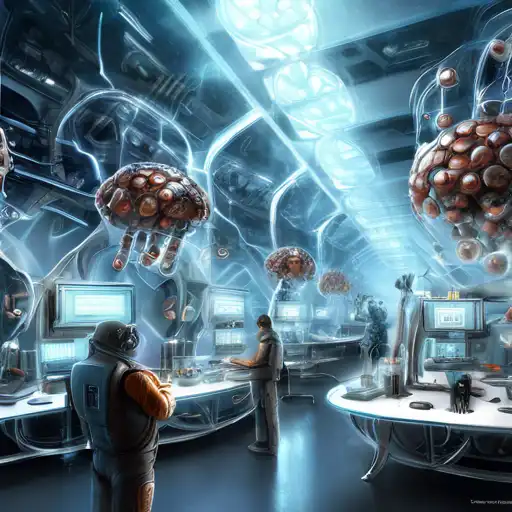Introduction to Nanotechnology
Nanotechnology, the science of the incredibly small, is making waves across various industries by offering solutions that were once thought impossible. This technology operates at the nanoscale, dealing with structures less than 100 nanometers in size. To put that into perspective, a sheet of newspaper is about 100,000 nanometers thick. The potential applications of nanotechnology are vast, ranging from medicine to environmental science, and even in the manufacturing sector.
The Science Behind Nanotechnology
At its core, nanotechnology involves the manipulation of atoms and molecules to create materials with remarkably varied and new properties. This manipulation allows scientists and engineers to build structures from the bottom up, leading to innovations such as stronger, lighter materials, more efficient energy sources, and even targeted drug delivery systems in medicine.
Applications of Nanotechnology
The applications of nanotechnology are as diverse as they are revolutionary. Below are some key areas where nanotech is making a significant impact:
- Medicine: Nanotechnology is paving the way for breakthroughs in drug delivery, cancer treatment, and even the regeneration of damaged tissues.
- Electronics: The tech industry benefits from nanotechnology through the development of faster, smaller, and more efficient electronic components.
- Environmental Science: Nanotech offers solutions for clean energy, water purification, and pollution reduction.
- Manufacturing: The creation of nanomaterials leads to products that are stronger, lighter, and more durable.
Challenges and Ethical Considerations
Despite its potential, nanotechnology faces several challenges, including high production costs, potential health risks, and ethical concerns regarding its use. It's crucial for ongoing research to address these issues to ensure the safe and equitable development of nanotech applications.
The Future of Nanotechnology
The future of nanotechnology is bright, with ongoing research and development promising even more groundbreaking applications. As we continue to explore the nanoscale world, the possibilities seem limitless. From curing diseases to solving some of the world's most pressing environmental problems, nanotechnology holds the key to a better future.
For those interested in learning more about how nanotechnology is shaping our world, explore our technology section for the latest updates and insights.
